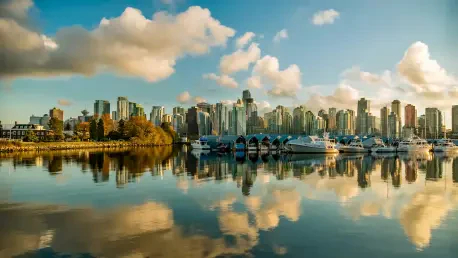The natural wonders of Vancouver Island North are renowned for their pristine landscapes, diverse ecosystems, and rich cultural heritage. However, increasing tourism and environmental challenges pose significant threats to this delicate region. In response, Vancouver Island North Tourism has introduced the #LiveTheWildPledge initiative, aiming to promote sustainable travel practices and foster a collective responsibility for preserving the region for future generations.
Sustainable Travel Practices
Leave No Trace and Tread Lightly
Adhering to the principles of “leave no trace” and “treading lightly on the land” is essential for preserving the natural environment of Vancouver Island North. Travelers are encouraged to minimize their environmental footprint by following simple yet impactful guidelines. This includes packing out all trash, staying on designated trails to prevent erosion, and respecting wildlife by observing from a distance. By taking these actions, visitors contribute significantly to maintaining the integrity of the region’s ecosystems.
Equally important is the principle of treading lightly, which emphasizes mindful movement through nature. Travelers should avoid disturbing natural habitats and take care to protect fragile vegetation and wildlife habitats. Simple actions, such as using reusable containers instead of single-use plastics and supporting local waste reduction programs, can make a substantial difference. By embracing these practices, visitors help ensure that Vancouver Island North continues to thrive as a sanctuary for its diverse flora and fauna.
Supporting Local Communities and Businesses
Choosing eco-friendly accommodations and services plays a critical role in safeguarding the region’s natural beauty. Local businesses that prioritize sustainable practices are pivotal in creating a tourism industry that benefits both the environment and the community. Travelers are encouraged to select lodgings that implement green initiatives, such as energy-efficient lighting, water conservation measures, and waste reduction programs. Supporting restaurants and shops that source local, organic products also helps reduce the environmental impact of tourism.
Moreover, engaging with local communities is an integral part of responsible travel. By participating in cultural exchanges and supporting community-led ventures, visitors can foster a deeper connection with the region and contribute positively to its socio-economic development. Travelers should seek out experiences that promote cultural understanding and respect for local traditions, ensuring that their travels leave a lasting, positive impact on both the environment and the people of Vancouver Island North.
Engaging in Conservation Efforts
Cleaning Up Marine Debris
One of the most effective ways travelers can protect Vancouver Island North’s natural beauty is by actively participating in cleanup efforts, particularly along the coastline. Marine debris poses a significant threat to marine life and coastal ecosystems. Visitors can make a tangible impact by collecting beach debris during their explorations. Bringing a reusable tote bag to collect and dispose of trash found on the beach is a simple yet powerful way to contribute to the region’s environmental health.
Free cloth tote bags are available for those who commit to this act of care, making it more accessible for everyone to participate. Organizing group cleanup activities can also amplify the efforts, creating a sense of community and shared responsibility. By removing plastics and other debris from the beaches, travelers help protect marine habitats and ensure the pristine condition of the coastline for future generations to enjoy.
Learning from Indigenous Communities
Indigenous communities, particularly the Kwakwaka’wakw people, play a crucial role in promoting sustainable tourism and environmental stewardship on Vancouver Island North. Their deep cultural knowledge and connection to the land offer invaluable insights into respectful and meaningful interactions with nature. Visitors are encouraged to engage with these communities to learn about traditional practices and cultural heritage, fostering a deeper understanding and appreciation of the region’s history and natural environment.
Participating in guided tours led by Indigenous experts provides an opportunity for travelers to gain a unique perspective on the land and its conservation. These tours often include lessons on sustainable harvesting, traditional ecological knowledge, and cultural protocols. By respecting and supporting Indigenous initiatives, visitors contribute to the preservation of both the cultural and ecological integrity of Vancouver Island North. Ensuring travels align with Indigenous values and practices is a vital aspect of the #LiveTheWildPledge.
Collective Efforts for Preservation
The #LiveTheWildPledge in Action
The #LiveTheWildPledge serves as a call to action for both visitors and locals to unite in preserving the wild beauty of Vancouver Island North. By committing to sustainable practices and sharing experiences through the hashtag #ForTheGoodOfOurWild, individuals can inspire others to follow suit. This collective effort aims to create a positive ripple effect, encouraging more people to adopt environmentally conscious behaviors and support conservation initiatives.
The pledge emphasizes the importance of simple, everyday actions that collectively make a significant impact. Whether it’s picking up litter, supporting eco-friendly businesses, or educating others about the importance of conservation, every effort counts. Encouraging a culture of sustainability within the community and among travelers helps ensure that Vancouver Island North remains a pristine and vibrant destination for future generations.
Spreading Awareness and Inspiring Change
Raising awareness about the importance of sustainable travel and conservation is a key component of the #LiveTheWildPledge. Sharing stories, photos, and tips on social media platforms using the designated hashtag helps spread the message to a wider audience. By highlighting positive actions and showcasing the region’s natural beauty, participants can motivate others to take similar steps in their own travels and daily lives.
Educational programs and community workshops also play a vital role in fostering a culture of environmental stewardship. Offering resources and guidance on sustainable practices empowers individuals to make informed decisions that benefit both the environment and the local community. Through collaborative efforts and ongoing education, the #LiveTheWildPledge aims to create lasting change and ensure the protection of Vancouver Island North’s wild beauty.
Moving Forward with a Sustainable Vision
To safeguard the pristine nature of Vancouver Island North for the future, it is imperative that all stakeholders continue to embrace and promote sustainable practices. The #LiveTheWildPledge has set a strong foundation for responsible tourism, but ongoing efforts and adaptive strategies will be crucial in addressing emerging environmental challenges. Supporting policy changes, advancing conservation research, and fostering partnerships among governments, businesses, and communities will be essential in sustaining the region’s natural and cultural heritage.
Looking ahead, innovative solutions and increased engagement will be necessary to mitigate the impacts of climate change and human activities on the environment. By championing sustainable tourism and prioritizing the long-term health of ecosystems, Vancouver Island North can serve as a model for other regions striving to protect their natural assets. A collective commitment to preserving this unique and cherished landscape will ensure that its wild beauty endures for generations to come.
In conclusion, the #LiveTheWildPledge initiative, with its focus on sustainable practices, community involvement, and cultural respect, represents a pivotal step in preserving Vancouver Island North’s natural wonders. Embracing the principles of leave no trace, supporting local eco-friendly businesses, and learning from Indigenous communities are vital in fostering a deep connection to the land. Through collective efforts, the region remains a sanctuary of wild beauty, demonstrating the profound impact of responsible and mindful travel.









